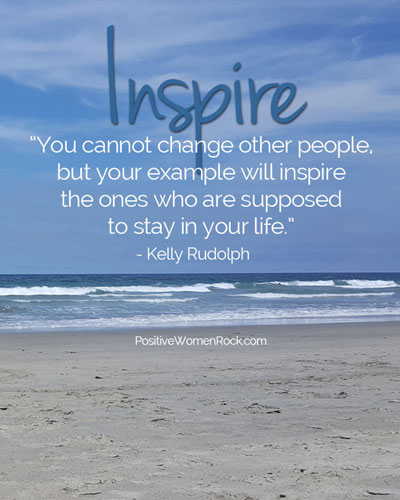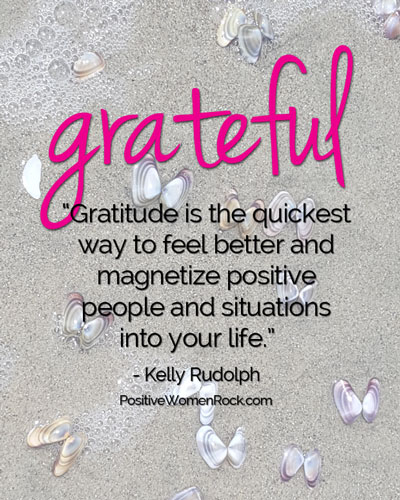Happiness seems to be the ultimate — yet most elusive — of goals.
We want to be happy with our family, work, health, finances, relationships and future. And while we may feel happy for brief or fleeting moments, soaking in an adrenaline rush and energy, the feeling seems to fade quickly with the next less-than-positive person or situation that we encounter.
Happiness in the moment can inspire fear of “What if this doesn’t last and I go back to being sad or depressed?”, which can put a real damper on the good feelings. Is it any wonder we don’t see happiness as a long-term state of being?
But here’s a secret: Happy is a state of doing, not being. Happy people do things differently than unhappy ones, and you can too.
Let’s first look at how we got into this mess of striving for happiness without fully believing it’s possible. Together, we can create something better than this dismal road to frustration and anxiety. We have a societal need to seek out what’s wrong with everything and focus on the negative. That has got to stop.
Why Is There So Much Negative?
You may have noticed the first topics on the nightly news are crime, disaster and violence. Why? That’s what gets ratings. Because if we see the bad things, our life doesn’t seem so bad in comparison. How can we watch, listen and read those things and achieve real or lasting happiness? In my opinion, we can’t. There are plenty of funny or positive websites, cat videos, TV shows and books that inspire laughter and joy. Negative, scary news only makes being happy more unattainable.
Does this mean you should tune out and lose touch with reality? No, it means you should shift your reality with a focus on positive topics you can do something about. Putting your energy on negative people and situations rather than how you ultimately want things to be only serves to create more of the same.
Realize that happy people are happy by choice, not by circumstance. Being happy is a habit, just like picking your clothes up off the floor, brushing your teeth or being nice to a co-worker you’d rather not be around.
So, how do you build a happiness habit? Start with these 6 things:

1. Find your happy thing.
Choose one thought per day to focus on when you feel down; determine what it will be when you first wake up. This will be your go-to topic or happy thing when you want to raise your energy and feel better. You can focus on your beloved dog or cat, a child or loved one, the best kiss you’ve ever had, a family vacation or moment of celebration … anything that makes you feel instantly happy.
Each time you feel your energy dropping into negative feelings like fear, anger, frustration, resentment, etc., call upon your happy thing and stay in that moment for as long as possible (17 seconds minimum).
Although it may sound simplistic, it works — and for longer periods of time! As you practice, you’ll start to feel happier more often. In addition, you will attract more positive people and situations to you based on the universal law of vibration — like attracts like — which is working 24/7, whether you believe it or not. In other words, this one happy habit of refocusing your energy draws more into your life about which to be happy!
2. Realize that their happiness isn’t your responsibility.
One of the other messes we can begin extricating ourselves from immediately is to stop taking responsibility for other people’s happiness. If you think you can make other people happy, not only are you signing up for an unwinnable game, you are taking away their power by enabling them to be victims, rather than empowering them to be strong and successful.
You may have heard, “Life is 10 percent what happens to you and 90 percent how you react to it.” by Charles R. Swindoll. If you’ve adjusted your reactions or your responses (a response is conscious, while a reaction is often unconscious) you know this to be true.

So, happiness is a choice. Can you be happy when everything is falling apart around you? Probably not, but you can adjust your responses.
3. Be grateful for the little things.
Gratitude is the most positive of energies; it attracts positive situations and people.
There are seven main laws that keep our universe running in an orderly manner, but does it seem like things are out of balance and chaotic here on Earth? That’s because without understanding the laws of the universe, we inadvertently use them to our disadvantage rather than to our advantage! We compare our situation to other peoples’ situations, thinking ours look worse.
If we used the Universal Law of Relativity to our advantage, we would compare our situation to one that is worse; in comparison, ours will look better. It’s a quick way to feel instantly happy, because it helps you realize that your situation isn’t as bad as you originally thought.
Gratitude for small things has a huge impact on happiness. For example, when you are stuck in traffic on the way to work, you can complain about it or you can be grateful you have a vehicle. If it’s sunny in that traffic jam, be grateful for the beautiful day. If it’s raining, be grateful that you aren’t in a convertible with the top down.

There is always something to be grateful for, and if you feel silly looking for things to be happy about, that feeling will be far outweighed by the lasting, long-term joy.
4. Avoid negative people.
If you have negative friends or co-workers, realize how you feel around them. Do you feel happy or dragged down? Can you change the subject or act so positive that they move away to a more miserable crowd?
Remember: Happy isn’t something you are; happy is something you do. Happy habits result in a cup of coffee or glass of wine being an option, rather than a necessity to increase energy or reduce stress. Also remember that no one can be happy all the time without some effort and the practice of good habits.
5. Understand that you are free and have endless opportunities.
My clients who start out as unhappy people, even though they are going for their dreams, are living their lives by default. In other words, they are playing the hand they were dealt, rather than designing a life they enjoy.
We all have the option of drawing new cards in our game of life. When you realize the power you have; in choices and responsibility for your own happiness, you feel a sense of freedom and endless opportunities — both of which are breeding grounds for happiness.
Determine what makes you happy. What are you doing when you feel your best? Where are you? Who, if anyone, are you with? Are you doing an activity like yoga, hiking, reading, hanging out with friends or meditating, having a dinner party or visiting family?
Do more of what makes you happy. Schedule your me time and figure out what’s important for you to be your best.
6. Stop tolerating.
Another good habit to get into is zapping tolerations. A toleration is something you’re putting up with instead of dealing with or deleting.
For example, I had a small piling system of seemingly important papers that I would move from my desk to the floor and back again, rather than just taking a few minutes to sort it and add to an appropriate filing system. Three months went by and I only sorted the pile because a friend was going to be staying with me — I wanted my desk to look neat and tidy. It took all of 20 minutes.
The frustration and stress that stupid pile caused over three months was huge, compared to zapping it in 20 minutes. Now, I file my piles at one inch in height rather than three and I’m much happier.
The Process For Happiness
Your process to be happy is multi-fold: find things to be grateful for in all situations, be kind and courteous to others while realizing they are responsible for their own happiness, shift toward positive people and situations and news, zap those tolerations, and use your happy thing as a trigger for feeling good. You will notice a huge difference.
Habits take time to form, so practice, practice, practice… and remember, “try” implies doubt while “practice” makes you better.


